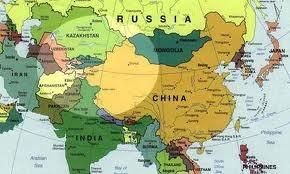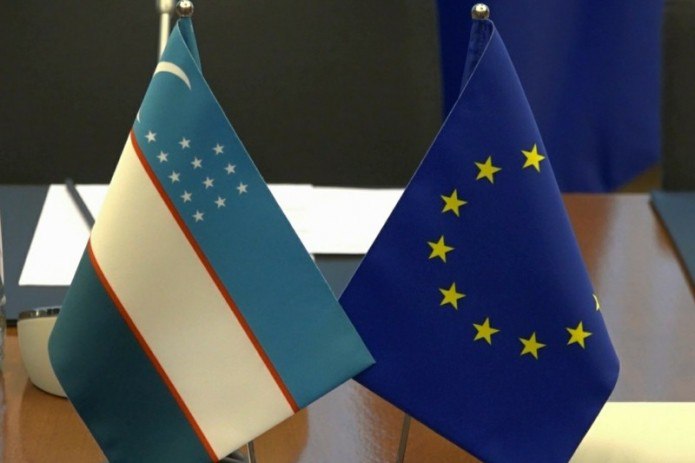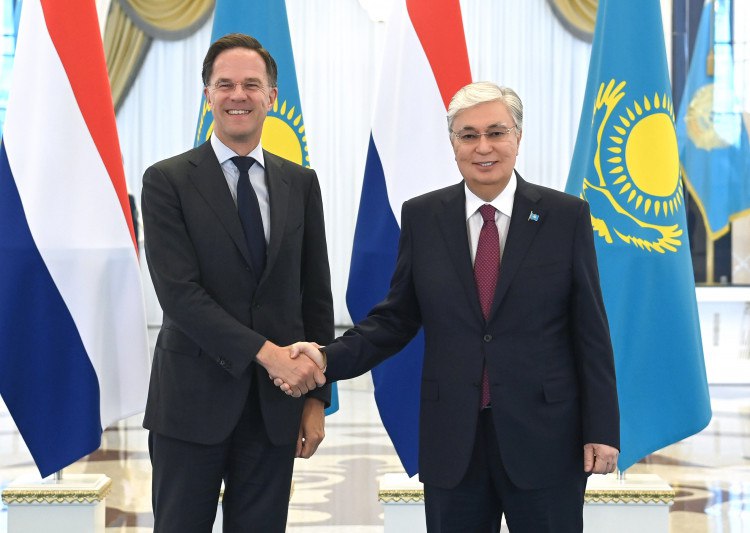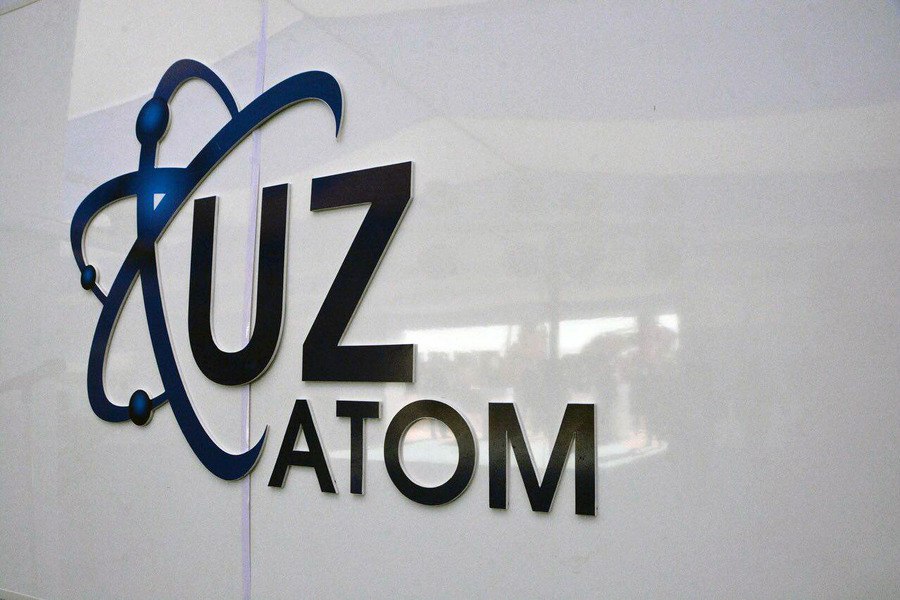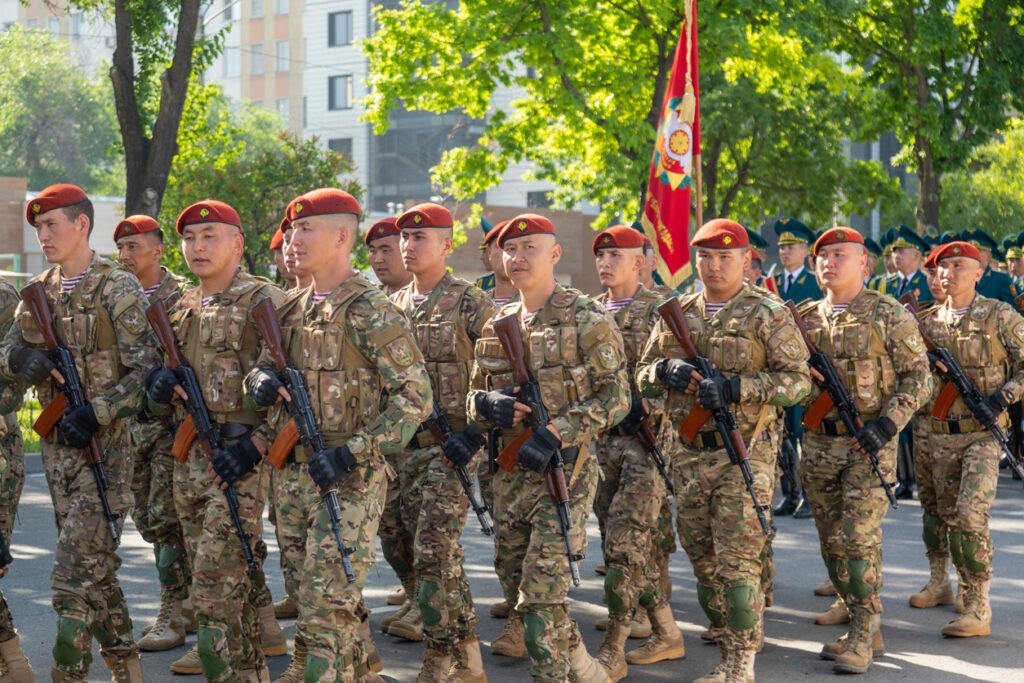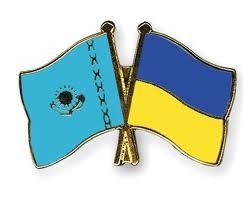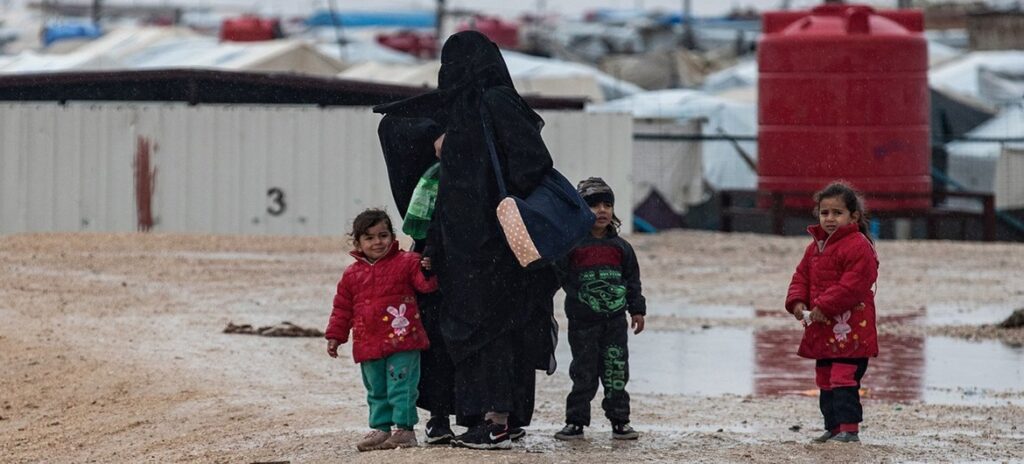BISHKEK (TCA) — The Times of Central Asia presents to its readers Stratfor’s Global Intelligence, a weekly review of the most important events that happened in the world — from Europe to Middle East to Russia to Central Asia to Afghanistan to China and the Americas.
The Week That Was
European Central Bank Meeting
The European Central Bank’s big meeting on Thursday resulted in something of a market rollercoaster. President Mario Draghi’s package exceeded market expectations, and the euro initially plummeted, before abruptly reversing and soaring back higher than its starting point. The incident brought into sharp focus the euro area’s place in the global economy, and in particular the relative strength of its current account surplus. Genuine weaknesses elsewhere are now making it much harder for the European Central Bank to drive its currency artificially downward.
The second part of the European Central Bank’s package meanwhile — loans designed to both bolster Europe’s banking system and stimulate lending — should be poised for greater success. All things are relative of course, and in this uncertain global economic climate with a heavily indebted and unsteady Italian banking system, a success may be as simple as avoiding the type of banking panic that afflicted the sector in the first quarter. Draghi’s own problems persist though, insofar as his job description explicitly entails hitting an inflation target of 2 percent, a goal that now seems more distant than ever. The European Central Bank could start to use more unconventional monetary policy instruments to this end. The key thing to watch ahead is growing political dissent in Germany and its northern allies over the European Central Bank’s trajectory.
China’s Nonperforming Loans
A rumored proposal by the People’s Bank of China to address its nonperforming loans problem caught our eye amid the dozens of other leaks during the National People’s Congress. The People’s Bank of China is reportedly proposing regulations to allow China’s commercial banks to swap nonperforming loans for equity in poorly performing companies. This is intended to allow the banks to lend more money while also making underperforming companies look more attractive for investment. While nonperforming loan ratios would go down, this would essentially be adding bad assets onto the balance sheets of China’s banks while potentially leading to more cash infusions into the companies that are experiences losses, the dismantling of which is one of China’s avowed goals under President Xi Jinping’s supply side reforms. At least one company, the troubled state-owned shipbuilder China Huarong Energy Co. Ltd., has announced that it is preparing to unroll a debt swap program near the end of the month, but countless other firms could be making similar preparations. Under pressure from the central government to take on bad assets, produce more loans to support ailing enterprises, and buy up local government bonds, 2016 is shaping up to be a stressful year for China’s banking sector.
Lesin Death Revelations
Russia is reminding the United States of the old Cold War adage: “Admit nothing, deny everything and make counter-accusations.” It has now come out that Mikhail Lesin, Russia’s former Press Minister, did not die from a heart attack as originally reported when he was found dead in his Washington hotel in Dupont Circle. The U.S. investigation revealed that Lesin died of blunt force injuries to the head, neck and upper and lower torso. Lesin, nicknamed “the bulldozer,” was the Kremlin’s propaganda chief who believed to have fallen out of favor with Yuri Kovalchuk — President Vladimir Putin’s personal money manager and close friend.
At the end of 2014, just as the United States was readying sanctions on Russian officials (including Kovalchuk), the U.S. Senate and Department of Justice began investigating Lesin on corruption and money laundering charges. Lesin had by then gone into self-imposed exile in California and we can only speculate that the stage was then set for Lesin to cooperate with U.S. authorities to share sensitive information on Putin in exchange for making the charges go away. We can also speculate that Lesin’s mysterious death was the Kremlin’s way of silencing him. Besides being a great plot for another great Tom Clancy novel, what strikes us about this murder mystery is the sheer boldness of the assassination — death by blunt force trauma in a hotel in the heart of the U.S. capital. This is eerily reminiscent of the tea poisoning that killed former Russian Federal Security Service (FSB) officer Alexander Litvinenko in a hotel bar right next to the U.S. embassy in London. Only this time, is the Kremlin trying to show that its reach extends to U.S. soil. On top of that, Russia is spinning the story and craftily playing the innocent card by demanding answers from Washington on the circumstances of Lesin’s death. Bold moves indeed.
Political Progress in Argentina
In less thrilling, but no less important developments, this week saw more progress by the government of Argentine President Mauricio Macri with the different political blocs making up the country’s political left in negotiations to repeal the “lock laws.” These laws prevent Argentina from offering different terms to holdout bondholders on the repayment of bonds the country defaulted on in 2001. Macri likely has the votes needed to repeal them in the lower house but the senate, where the opposition Front for Victory (FPV) has a majority, is the real challenge. Macri will continue drawing his coalition closer to dissident Peronist lawmakers such as Sergio Massa. Massa’s rationale for going along with Macri will continue to be the issue of government spending.
Successfully repealing the lock laws and accessing global capital markets would give Massa and other provincial politicians increased access to funds for infrastructure projects beyond what their cash-strapped provinces currently possess. The Cambiemos coalition negotiators also held discussions with opposition provincial governors future infrastructure projects, as well as the devolution of funds to the provinces, to gain the votes of their lawmakers in congress. The congress is slated to vote on the lock laws later in March. Opposition lawmakers against the repeal of the lock laws are increasingly in the minority, and a victory for Cambiemos appears ever more plausible.
Agreements in the Emirates
The United Arab Emirates made some notable agreements this week in the aerospace sector that highlight the desire to diversify economically, as well as Russia’s efforts at privatization. Mubadala Development Company, among Abu Dhabi’s sovereign wealth fund-based corporations, signed a five-year strategic agreement with Boeing to cooperate on research and development initiatives, particularly in robotics and aircraft assembly. Also in Abu Dhabi this week, according to head of Russia’s Rostec and news agency Itar Tass, Mubadala is in talks with Russia’s Rostec on purchasing a stake in Russian Helicopters. For the UAE government, the Boeing agreement is a reaffirmation of a valued corporate relationship that falls in line with the Emirati government’s imperative to diversify its economy.
Aerospace is a sector of particular interest that could employ young Emiratis in a strategic field. Boeing and the United Arab Emirates have also cooperated on numerous initiatives before. The Rostec stake, on the other hand, would continue Abu Dhabi’s pattern of prudent global investment in growing sectors, like commercial aviation. For Russia, Mubadala owning a stake in the company Russian Helicopters would still allow Rostec operational control of the company while furthering privatization plans to willing buyers. Even in a low oil-price environment, the Gulf Cooperation Council’s sovereign wealth funds are widely engaged across the world in purchasing equities in fields that promise growth. Joint agreements with other sovereign wealth funds, like the $2 billion joint fund set up by Russia’s Direct Investment Fund and Mubadala in 2013, are also common.
Full Articles
The West Moves Discreetly in Libya
Satellite imagery confirms the arrival of French special operations forces to Benina air base near Benghazi, Libya. The base, which is under the control of Gen. Khalifa Hifter’s forces, was rumored to host as many as 180 French soldiers in February, but this has been neither confirmed nor denied.
Bridging the Gap Between China’s Central and Local Governments
One of the most distinctive features of the Chinese political system is central government’s perennial struggle to ensure local compliance with national policy. Since the start of “Reform and Opening” in 1978, the distribution of fiscal and administrative power among China’s central and local governments has fluctuated, but despite enormous changes in China’s political system in the decades since Mao’s death, local governments continue to evade or subvert central policies. As President Xi Jinping’s ongoing anti-corruption campaign suggests, the gap between central and local interests, and the constraint this gap places on the state’s ability to govern effectively, remain fundamental concerns for China’s leaders today.
Southern Africa’s Options Are Drying Up
Extreme drought and low commodity prices are crippling economies across southern Africa. For much of the past decade, China’s rapid growth led to the massive consumption of raw materials, the export of which African governments rely on for revenue. But as China’s economy has slowed, global demand for those goods has plateaued, causing prices to drop. Because of their heavy dependence on commodities-based revenue, southern African governments have been among the hardest hit by low prices, especially as some producers have been forced to scale back output. As if this were not bad enough, the worst drought in more than three decades is threatening the region’s food security. Together, the forces of nature and market have given southern Africa a particularly bleak economic outlook over the coming year.
The Nuclear Arms Race Is Alive and Well
Russia is determined to maintain its nuclear deterrence against the United States. Its navy plans to test 16 submarine-launched ballistic missiles (SLBMs) in a single salvo from a nuclear submarine in the Barents Sea soon, according to a source quoted in Russian daily Izvestia, though the source did not provide a date. Other Russian media agencies have reported that only two missiles would be tested. Launching 16 SLBMs would be notable; most tests launch only a single missile, maybe a handful at most. But it would also be risky and expensive. Regardless of how many missiles Russia launches, the point is the same: Moscow is brandishing its nuclear capability in response to U.S. advancements in anti-ballistic missile technology and nuclear modernization.
Jihadism in Yemen: A Long History, a Long Future
Yemen has long been a hotbed of jihadist activity. That history has also included discord among the various jihadi groups, including animosity between Al Qaeda in the Arabian Peninsula and the Islamic State. Despite the discord, expect both groups to remain a persistent threat in the country.
The Week Ahead
Migrant Talks Continue
The migration crisis will remain the most important issue for Europe next week, as EU memberstates seek to introduce reforms in their asylum regulations and iron out the details of their draft agreement with Turkey. On March 16, the European Commission will unveil a proposal to change the rules stipulating that asylum seekers should file their applications in the first country through which they entered the European Union. On March 17 and March 18, EU members will hold a second debate on the migration agreement with Turkey. There are several issues, with Hungary saying it will oppose plans to redistribute asylum seekers across the European Union, Austria criticizing a plan to grant visa-free travel to Turkish citizens and Cyprus threatening to veto Turkey’s EU accession talks. Even if EU members reach an agreement, enforceability will remain a giant question mark.
China’s Congress Ends
China’s National People’s Congress will conclude on March 16. The major question that appears to be dominating its debate is how the central government should allocate a 100 billion yuan package intended to assist in worker relocation and retraining as China shuts down excess production capacity in heavy industries such as steel and coal. Representatives from China’s local governments are all paying lip service to the need to trim overcapacity, but are clamoring for more support from the central government in the form of special subsidies. They are also competing with one another to ensure that their provinces get a larger share of already allocated money. With lively debate ongoing, it appears likely that there will be announcements of new details on the implementation of safety nets for laid off workers.
Venezuela’s Opposition Presses Forward
Following opposition street protests March 12, Venezuela’s opposition will press forward with collecting signatures for a recall referendum, although the supreme court or the National Electoral Council can block both the referendum process and an accompanying constitutional amendment to shorten President Nicolas Maduro’s tenure. Independently of the opposition protests, numerous small yet disorganized protests over high inflation, food shortages, high cost of public transport, and failing public utilities will continue across the country. These demonstrations do not threaten the government by themselves, but are potential catalysts for further unrest that we will continue to monitor.
Increasing Protests in Brazil
With the detention and growing criminal investigation against former President Luiz Inacio Lula da Silva in Brazil, protests against President Dilma Rousseff will heat up in the week ahead. Rousseff faces the rising threat of impeachment that she has so far managed to offset by careful negotiations within the parties of the lower house. But with the growing investigation against da Silva, a disorganized opposition movement against Rousseff has been revitalized. The main faction leading this movement is the anti-Rousseff organization Vem Pra Rua. Major demonstrations are expected in Sao Paulo and Rio de Janeiro, with smaller protests plausible in smaller cities. The size of these protests will be crucial to monitor, as it will reveal what level of cohesive public support exists in favor of impeachment. A pro-da Silva call to protest on the same day was rescheduled for fear of confrontations, although the risk of isolated violence associated with such demonstrations will persist.
Syria Talks Begin
The UN-sponsored Syria peace talks starts are scheduled to start on Monday in Geneva. The talks come after a cessation of hostilities effort that commenced on Feb. 27 which has led to a significant lull in violence, even as fierce fighting has dragged on in large parts of Syria. Both the opposition and the government have agreed to meet, although initial negotiations will be conducted through an intermediary format given the very preliminary stage of the talks. The status of the Kurdish opposition in the negotiations, principally the Syrian Kurdish Democratic Union Party (PYD), has not been determined as of yet, though the Russians continue to call for their inclusion.
As yet another round of talks is set to begin, a solution that involves federalism in Syria has become increasingly prominent. A number of Kurdish groups including the PYD have called for such a system, and leaks from the United Nations suggest both the Russians and the Americans are considering it. The opposition High Negotiations Committee, however, which ostensibly negotiates on the part of a broad array of armed rebel groups (excluding the main Kurdish groups) insists on Syria’s unity. During next week’s peace talks, the fate of President Bashar al Assad will remain the major point of contention. Arab states backing the rebels such as Saudi Arabia have called for al Assad’s departure at the beginning of the transition period, While Western have suggested that the president can go following the transition period as per the Vienna road map established in 2015.


